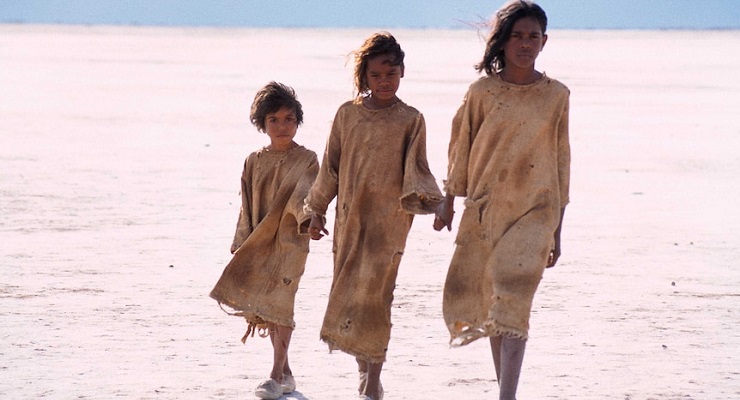
Anthony Albanese talked pre-election about wanting to live in a country that made things — to support, for example, an advanced manufacturing sector befitting the 12th wealthiest nation in the world. But there’s no certainty that wish extends to the world of film and television.
The exponential growth over the last decade of streaming video on demand (SVOD) services like Netflix has transformed not only how we watch film and TV, but where that content is made. On the eve of the last election, the amount of Australian content on streaming services like Netflix was reduced to 2%. In other cases, zero.
The Europeans are awake to the threat and have demanded that SVOD services have local content quotas as high as 30%. And in good news, Netflix has reached or transcended 30% in most markets in Europe. Even in the UK, which shares a language with American productions, that figure is 27%.
Yet in Australia, we understand that the Albanese government may be considering a grandfathered approach of 5% a year that might stop at 15%, or half of European quotas.
For nations that want to tell their own stories, and develop their own acting, writing and directing talent, that model is death. Unfettered, a lack of local content quotas will kill national screen sectors and stories. If you want to imagine what that looks like in Australia, that means no more movies like Wake in Fright, Gallipoli or Rabbit-Proof Fence, or television shows like Prisoner, Rake or Mystery Road.
The preferred business model for streaming services is to make one production, then franchise or syndicate that piece across as many national platforms as possible. Variety is expensive.
In Australia, the SVOD services do not want to go there, which means the Labor government will need to legislate content quotas. The good news for voters in a tight fiscal environment is that they don’t need to pay a red cent. The funding for local content would come from subscriptions which have already been paid for.
While the SVOD sector is lobbying to keep local content quotas where they are — non-existent — the Australian screen sector would like to see them up around 20-25%, with additional support around talent development: helping fund pathway organisations like the Australian Film Television and Radio School (AFTRS) the National Institute of Dramatic Art (NIDA), or universities running screenwriting courses.
Are you worried about the dearth of Australian-made content on streaming platforms such as Netflix? Let us know your thoughts by writing to letters@crikey.com.au. Please include your full name to be considered for publication. We reserve the right to edit for length and clarity.








A good companion piece to Rundle’s article on the difficulties of becoming a republic. We don’t have to go back to the quota system of the 70’s completely, but we do need to protect our cultural identity and nurture our talent. I’d be happy to see the SVOD’s forced to make another Mystery Road, or a Wakefield. We’re deluged with a lot of underwhelming crap from overseas, we pay a lot of money for streaming services, and I think a debt is owed.
If Tony Bourke fluffs this one, it will be a disgrace. Unlike any of his coalition predecessors, he’s taken the trouble over a period of years to understand the Australian film and TV landscape. He knows how precarious the situation is, even as the streamers strip billions of $ out of Australian pockets just to deliver us foreign stories. He has previously spoken positively of European moves to protect local content by quotas and had put the international streamers on notice that Australia would follow suit. If he squibs on this, then he’s lost the industry forever– and proven himself and his government spineless when the industry lobbyists come calling. We are watching Tony.
A bit disappointed in our new labor govt. They seem to have been bought by the bug money very quickly. Didnt put up much of a fight to the glittering temptations. I assume the winners of this will be wealthy OS corporations.
There is no surprise in their having been bought but why is it always so cheaply?
One of the great things about this modern era is that we’re in a truly global network. While it would be nice if Australia could make content that meaningfully adds to the global conversation, that would be great. But I’m personally nonplussed whether or not we’re contributing to the content glut.
If a great Aussie show or film comes out, I’ll champion it. But what stories aren’t being told by the absence of Australian content on the global stage?
This is all about supporting our own local industry and telling our own stories, and the total lack of interest in the LNP to do this.
Yes, we should be watching the actions of the ALP govt, but this article ignores the bastardry of Ex LNP minister Fletcher allowing:
A small contingent of concerned actors/ directors, including Bryan Brown, met with Ex minister Fletcher, and got nowhere.
This article could have done with a little more context.